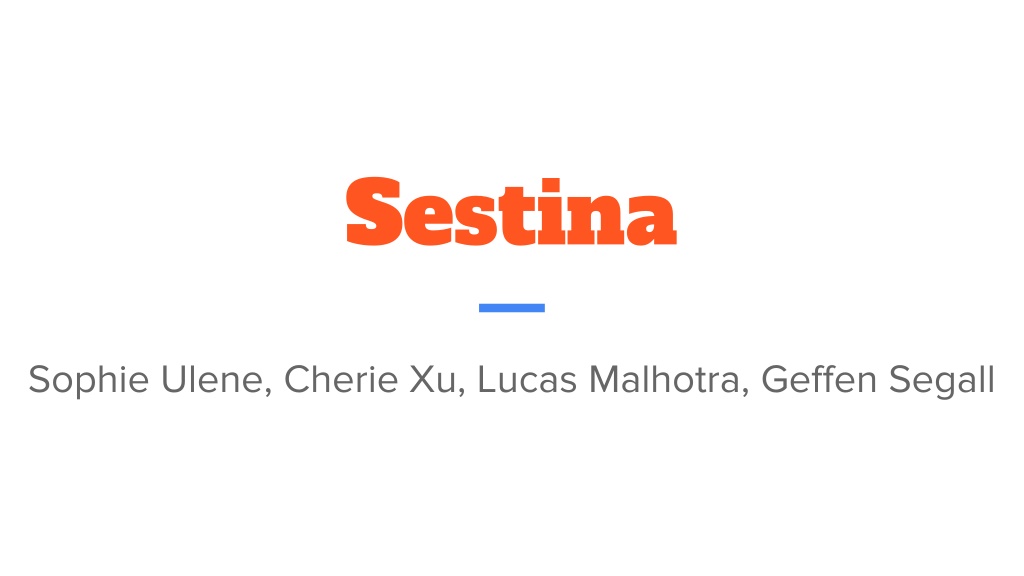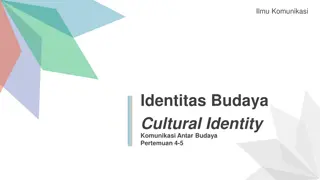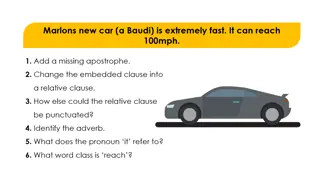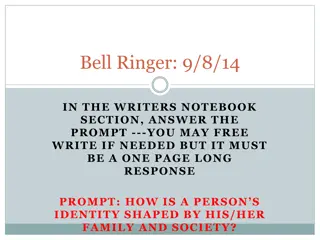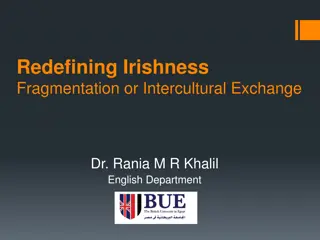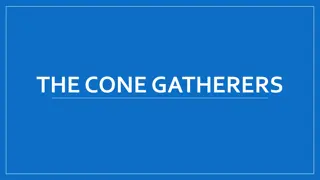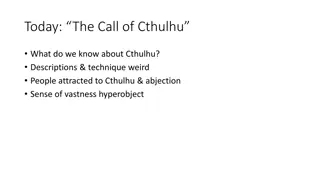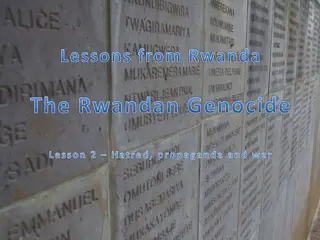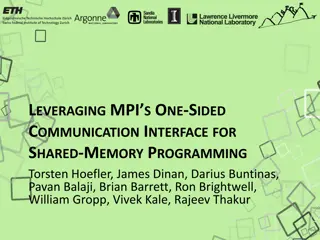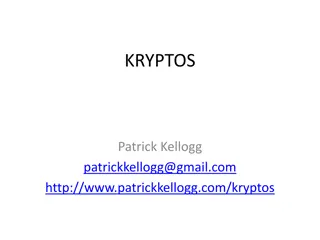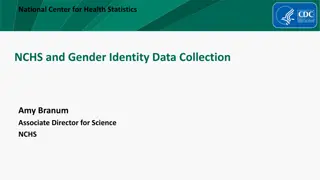Enigmatic Sestina: Exploring Love, Hatred, and Shared Identity
Delve into the mysterious world of sestinas through the origin, pattern, and a profound example titled "Sestina from the Life of a Double Monster." Unravel the intricate structure, end word rotations, and the envoi's significance as it delves into themes of love, hatred, and an intertwined existence depicted in a unique poetic form.
Download Presentation

Please find below an Image/Link to download the presentation.
The content on the website is provided AS IS for your information and personal use only. It may not be sold, licensed, or shared on other websites without obtaining consent from the author. Download presentation by click this link. If you encounter any issues during the download, it is possible that the publisher has removed the file from their server.
E N D
Presentation Transcript
Sestina Sophie Ulene, Cherie Xu, Lucas Malhotra, Geffen Segall
Origin of Sestina 12th Century- Arnaut Daniel (creator) Great poet: grand master of love Provencal troubadour Performer with chivalry, courtly love 39 Lines No rhyme scheme 6 different end words that rotate 6 stanzas with 6 lines + envoi
Pattern of End Words 1. ABCDEF 2. FAEBDC 3. CFDABE 4. ECBFAD 5. DEACFB 6. BDFECA 7. Envoi 1 2 3 4 5 6 6 1 5 2 4 3 3 6 4 1 2 5 5 3 2 6 1 4 4 5 1 3 6 2 2 4 6 5 3 1 Envoi
Last Stanza - Envoi The most fluctuating element Must contain all six words No apparent order Two words per line Presented in a three-lined stanza
Sestina from the Life of a Double Monster And until we die, (4) I will curse God from (5) morning until night. I (1) will dream of hatred and revenge as surely (3) as this brain of mine, this (6) half of all our thoughts, will (2) In a fashion, sure, (3) I have loved you. This (6) condition left me little choice. Die (4) and you would kill me, as I (1) must live for you. We will (2) always be thus dependent, no escape from (5) In your eyes, (1) I see my will (2) reflected in your face, as surely (3) as you have a face, the struggle does not die, (4) the struggle for you to break from (5) our shared atavism, this (6) retain the ability to think. My will (2) is immutable, and dyed (4) into the fabric of my very soul. Our soul. This (6) bicephalous singularity from (5) which I've never been apart, I surely (3) have never reconciled. But I (1) our biology. We, a bicellular life from (5) the liver of God -- for surely (3) He was angry when He willed (2) us into condemnation, this (6) prison of abnormality, this burden both you and I (1) must bear until we die. (4) inexorable tie, this (6) literal bond, the connectedness that you and I (1) share. But there is no escape from (5) us, nor for us. No amount of will (2) can ever make a difference. The die (4) is cast. The fates are sure. (3) will (2) never escape from (5) us, as surely (3) as there will be death, (4) and this (6) H for solitary I. (1)
Vocab Atavism - Reversion to something ancient or ancestral Inexorable - impossible to stop Bicephalous - having two heads
Poetic Effect and Analysis What is the underlying plot? How do you categorize the connection between the speaker and the other? Why did the Author choose to write in this form? How does the form contribute to the plot and the theme of the poem? Does this form help the author express the plot? Or does it limit him
but why am I talking to you as if you were here, Bob? I ll try to be more objective. Bob is probably a nice guy. Or that s what one hears. Bob is not, however, the most passionate person named Bob you ll ever meet. Quiet, polite, succinct, Bob opens doors for people, is reticent in grocery stores. Bob Bob by Jonah Winter According to her housemate, she is out with Bob tonight, and when she s out with Bob you never know when she ll get in. Bob is an English professor. Bob used to be in a motorcycle gang, or something, or maybe Bob rides a motorcycle now. How radical of you, Bob does not talk about himself excessively to girlfriends. Bob does not have a drinking problem. Bob does not worry about his body, even though he s a little heavy. Bob has never been in therapy. Bob, also, though, does not have tenure ha ha ha and Bob cannot cook as well as I can. Bob I wish I could ride a motorcycle, Bob, and also talk about Chaucer intelligently. Bob is very tall, bearded, reserved. I saw Bob at a poetry reading last week he had such a Bob- like poise so quintessentially Bob! The leather jacket, the granny glasses, the beard Bob! never even heard of paella, and if he had, Bob would not have changed his facial expression at all. Bob is just so boring, and what I can t understand, Bob yes I m talking to you again, is why you, Bob, could be more desirable than me. Granted, Bob, you re more stable, you re older, more mature maybe but Bob . . . and you were with my ex-girlfriend, Bob! And you re a professor, and I m nobody, Bob, nobody, just a flower-deliverer, Bob, and a skinny one at that, Bob and you are a large person, and I am small, Bob, and I hate my legs, Bob, (Months later, on the Bob-front: My former girlfriend finally married Bob. Of Bob, she says, No one has taken me higher or lower than Bob. Me? On a dark and stormy sea of Bob-thoughts, desperately, I bob.)
Assignment Write 3 stanzas + an envoi using the 6 end words chosen by the class. (21 lines)
